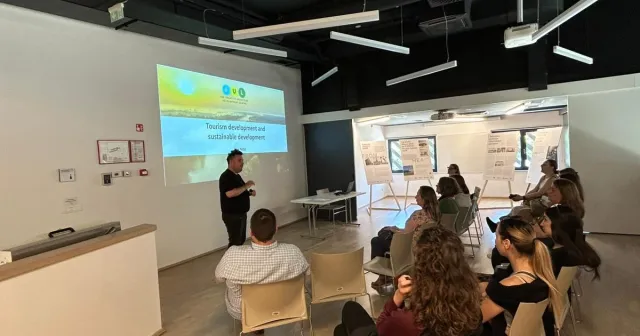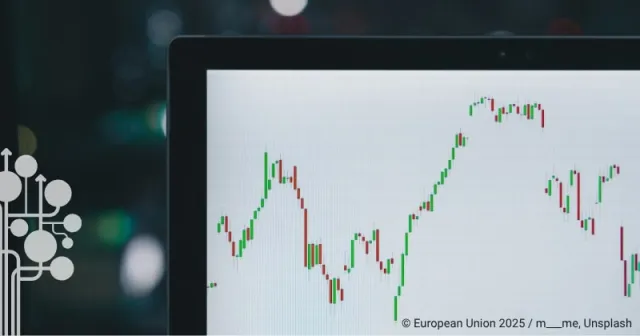Women, Martinique and social inclusion
[Translation : EPALE France]
During a mission in Martinique to promote adult education, I had the opportunity to meet many of the social-sector players involved in this Caribbean, French and, of course, European territory. One association caught my attention, through its work in the field with excluded populations or those on the verge of exclusion. Lavinia Ruscigni, director of "D'Antilles & D'Ailleurs", agreed to answer a few questions and reflect on the place of women in Martinique. Because feminist initiatives should be highlighted at every opportunity, for a more united, humane and socially-minded society.
https://www.dantillesetdailleurs.org/

David Lopez: Lavinia, can you tell us about D'Antilles & D'Ailleurs and specifically the activities you set up for women, particularly migrant women, who need a great deal of social support?
Lavinia Ruscigni: D'Antilles & D'Ailleurs (DA&DA) is a feminist NGO established in Martinique since 2016, working to eradicate gender-based violence and promote women's rights. More specifically, our organisation is committed to strengthening the skills, facilitating training and promoting the socio-economic integration of women and young people in vulnerable situations. DA&DA operates through two main units:
- The Cooperation, Gender Equality and Migration Unit. The aim of this unit is to coordinate and bring together all the initiatives promoted by DA&DA, targeting migrant women in situations or at risk of prostitution. We co-design sustainable projects with international associations to combat gender inequality and provide services and activities (training, social enterprises, healthcare, education, literacy) to migrant women in extremely vulnerable situations. The Cooperation, Gender Equality and Migration Unit works closely with the Youth Unit, as it is involved with young migrant women as well.
- The Youth Unit. We believe in cultural diversity and intercultural exchange as a means of building a richer world made up of informed citizens who are open to diversity. Through its Youth Unit, DA&DA supports local involvement, education and training for young people and professionals. What's more, this unit represents the structure's historic mission, offering an opportunity for many young people and local players to get involved in European and international mobility initiatives with partner organisations every year.
David Lopez: Is Martinique (ultra-peripheral France, in European terminology) different from mainland France, and in what ways (needs, situation of women, resources, role of institutions)?
Lavinia Ruscigni: Martinique is an island in the French Caribbean, around 7,000 kilometres from France, 120 kilometres from Guadeloupe and 3,300 kilometres from New York. As a French department, it is subject to French legislation and enjoys "ultra-peripheral region" status within the European Union.
The island is characterised by its immigrant populations and deeply marked by a history of slavery. In total, 70% of migrants come from the Caribbean and South America. Since 1990, the proportion of migrants in the regional population has remained stable, while the number of female immigrants has increased. 58% of migrants are women, compared with 54% in 1990 (INSEE, 2021).
Martinique's economy is based mainly on tourism, agriculture (particularly banana and sugar cane production) and the service sector. Tourism is a major source of revenue, attracting visitors with its beaches, picturesque landscapes and unique Creole culture. However, the economy remains fragile and largely dependent on subsidies and financial support from France and the European Union.
Martinique has a high unemployment rate, often higher than in mainland France. Young people and women are particularly affected by unemployment. Social and economic inequalities are also marked, with part of the population living in precarious conditions.
Although the education system in Martinique is similar to that in mainland France, vocational training and higher education are key areas for improving the socio-economic inclusion of young people and adults.
The same applies to the healthcare system, which is also aligned with the French model. However, there are disparities in access to healthcare, particularly in rural areas and for vulnerable populations, including the women supported by DA&DA.
The women welcomed and supported by "Trois Lieu", to which the DA&DA association belongs, have all experienced various forms of violence: sexual violence within the family, lack of affection, abandonment, psychological and/or physical abuse. In addition, beneficiaries face serious discrimination and stigmatisation at a local level. Added to this are socio-economic and educational difficulties, as well as cultural differences that complicate their integration. These women need to return to a dignified existence and be included both economically and socially. To achieve this, it is essential to be able to offer enhanced and appropriate social support.
To achieve this, DA&DA has developed a centre dedicated to social and professional inclusion in the heart of Fort-de-France, the capital of Martinique. Spread over two floors at 122 Rue Lamartine, Trois Lieu is a hybrid space for working, meeting and co-creating.
Trois Lieu is an open space that connects social inclusion professionals, offering a safe and secure environment for beneficiaries and an area to host project leaders. The idea was born in 2020 from the desire to combine the offices of DA&DA and those of the local branch of Mouvement du Nid, with the aim of working together, while enabling beneficiaries to find all the resources they need in one place.
David Lopez: Adult education is often an integral part of social inclusion. What do you think about this topic? And what training could be developed to enable these women to progress in society?
Lavinia Ruscigni: Adult education plays a crucial role in social inclusion, particularly in complex socio-economic contexts such as Martinique. It enables individuals to develop new skills, adapt to changes in the labour market and become better integrated into society.
For the women we support, training remains the entry point to all forms of inclusion within the host country. Learning the French language is a prerequisite for any other training course, and without it they cannot hope to achieve true inclusion and integration. Given the many psychological difficulties (physical and moral violence, trauma) and educational gaps they face, it is crucial to adopt appropriate learning methodologies.
In addition to the French language and a lack of knowledge of the support mechanisms to which they are entitled, beneficiaries suffer other forms of exclusion due to a lack of numerical and mathematical skills. We therefore need to adapt our learning methodologies. In practical terms, the women are not able to follow 'traditional' French classes, but benefit more from innovative approaches, such as the multi-sensory method, which is used for literacy. Indeed, stimulating different parts of the brain, using innate memorisation channels and drawing on the evocative power of experiences, emotions and memories promotes effective learning and optimal memorisation for people who have suffered psychological trauma.
This approach is illustrated by our Taste of Fusion Learning project, funded by Erasmus+ / Education Formation. For more information on this project, visit the following link: Taste of Fusion Learning.
In addition, we have found that for women to be able to take part in the appropriate training courses on offer (both linguistic and vocational, such as the Madeinwomen sewing workshop), support must include access to rights such as healthcare, housing, and administrative and legal procedures. It is essential to consider the intersectionality of the discrimination faced by these women.

David LOPEZ, Expert EPALE France




